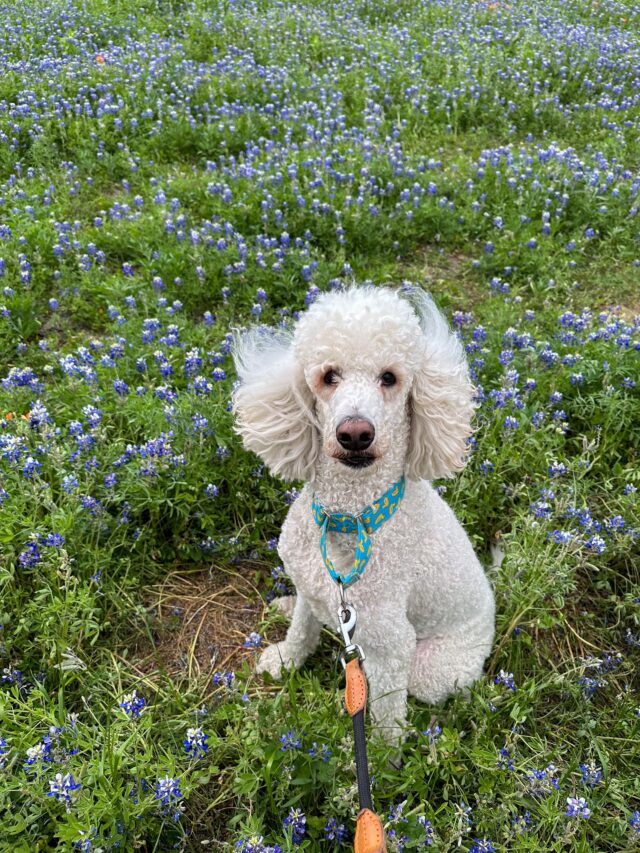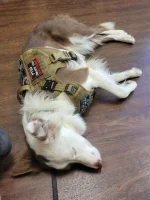

Two and a half-year-old service dog Bosley. Photo Courtesy of Kelley Young
One in seven students has a disability that impacts their learning or relationships. At Baylor, the Office of Access and Learning Accommodation works with students with disabilities as their advocate.
According to the American Disabilities Act, "service animals are working animals, not pets." This distinction is crucial for students who may not be familiar with the responsibilities of a service animal.
College Station senior Kelley Young has a heart condition that causes her to lose oxygen to her brain occasionally. She worked with the leading specialist to be matched with a service dog. In April 2022, she was matched and received her service dog, Bosley.
Bosley is a poodle, who is two and a half years old. For the first couple of months, Young and Bosley were adjusting to each other in Baylor's freshman dorms.
"[Living in the dorms] definitely helped with the bonding process," Young said. "He would get really stressed sleeping at night, so I slept on the floor with him."
The process of applying for a service animal through Baylor was difficult and time-consuming because of the rarity of Young's condition. It took about four months for Bosley to be allowed on campus. However, every professor and administrator has been accommodating, according to Young.
When Bosley gets sick, Young said they must be "done for the day." This includes classes and any other tasks Young had planned.
When Young first received Bosley, he ate a bluebonnet, which is toxic to dogs. He was sick for a few days, and Young couldn't attend classes.
Part of Bosley's job is to alert Young 20 minutes before she becomes aware of her low heart rate. Young also has hearing loss, so Bosley also serves as her ears sometimes when the outside noise levels become increasingly loud.
London, England senior Darcey Warne is Young's roommate of two years, and she said she "loves" Bosley and his protection of Young.
"It's comforting knowing there's always someone looking out for [Young] and keeping an eye on her," Warne said.
Under the ADA, any business or organization that serves the public "must allow service animals to accompany people with disabilities in all areas of the facility where the public is allowed to go."
"Bosley has the same right to go places as an oxygen tank or a wheelchair," Young said. "He is considered medical equipment."
While many students may be tempted to pet a furry friend, Young said she personally doesn't welcome that, unless he's "off-duty."
"It can be very confusing for [Bosley] when [a stranger] is reaching for [him]," Young said.
Warne said she benefits from Bosley's job as well.
"I got home after being in the heat for a long time, and he quickly alerted me that I was dehydrated," Warne said. "He's incredibly clever."
When strangers take pictures of them walking around campus, it is scary, Young said.
"I'm just a normal student, but it sometimes feels like walking through a parade," Young said.
Warne agrees, having been with Young and Bosley when this has happened before and said it is "incredibly uncomfortable."
"It risks distracting Bosley while he is doing his job of monitoring [Young's] health," Warne said. "He's very cute, but he is doing a job to support her."
Young understands that it can be challenging for students unfamiliar with Bosley's classification as a service dog to know how to act. However, Young encourages questions and is happy to share about her condition and Bosley's role.
"At the end of the day, he's a dog with a job," Young said.













